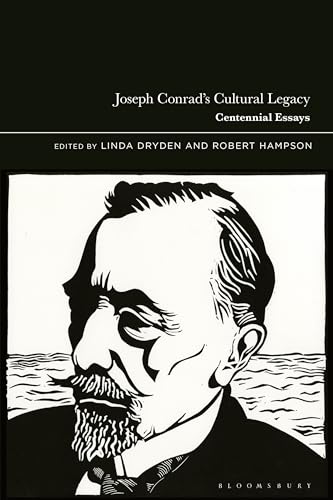
Joseph Conrad’s Cultural Legacy: Centennial Essays
Linda Dryden, Robert Hampson
Questions & Answers
Joseph Conrad's work has been widely interpreted and adapted across various media. In film, Alfred Hitchcock's "Sabotage" (1936) is a notable adaptation of "The Secret Agent," while "Heart of Darkness" has been adapted into numerous stage productions, including a one-man show and a free Bulgarian adaptation. Opera adaptations include Tarik O'Regan's "Heart of Darkness," which focuses on Marlow's complicity, and a suite for orchestra and narrator. For comic books, "Classics Illustrated" produced a strip cartoon adaptation of "Lord Jim," introducing the novel to a younger audience. These adaptations highlight the enduring relevance of Conrad's themes, such as colonialism, identity, and the human condition.
Joseph Conrad's portrayal of colonialism and imperialism in "Heart of Darkness" and other works has profound implications. His narratives often critique the dehumanizing effects of colonialism, highlighting the moral decay and violence that accompanied European expansion. In "Heart of Darkness," the character of Kurtz symbolizes the corrupting influence of colonial power, while Marlow's journey serves as a critical examination of the justifications for imperialism.
These themes resonate with contemporary readers and global events in several ways. The ongoing conflicts in Africa, the Middle East, and other regions reflect the legacies of colonialism, with issues of power dynamics, resource exploitation, and cultural dominance remaining relevant. The #MeToo movement also echoes Conrad's exploration of power dynamics, particularly in "Under Western Eyes," where the protagonist's struggle against autocratic rule mirrors contemporary struggles for justice and equality.
Moreover, the environmental crisis underscores Conrad's ecological concerns, as seen in "Victory" and "Nostromo," where the exploitation of natural resources parallels contemporary discussions on climate change and sustainability. Overall, Conrad's works continue to offer critical perspectives on colonialism, imperialism, and their enduring impacts on the global landscape.
Translations of Joseph Conrad's works reflect cultural differences and the evolving nature of world literature through various means. First, translators must navigate the complexities of Conrad's multilingual background, incorporating influences from Polish, French, and English into the target language. This process often highlights cultural nuances and biases, as seen in the translation of "Amy Foster" into Italian, where choices like "outlandish" as "straniero" emphasize the protagonist's outsider status.
Moreover, translations adapt to contemporary concerns, such as migration and environmental issues, as in Tania Zulli's translation of "Amy Foster" into Italian, which addresses contemporary migration experiences. Similarly, Kaoru Yamamoto's translation of "The Rover" into Japanese focuses on the ethical act of respecting the other and gender issues within the Japanese language.
The evolving nature of world literature is also evident in the changing reception of Conrad's works across different cultures. For instance, the popularity of Conrad's works in Japan, as seen in the world literature series, showcases how his works have been adapted to fit various cultural contexts over time. These translations and adaptations demonstrate the dynamic interplay between literature and culture, highlighting the ongoing evolution of world literature.
Joseph Conrad's narrative style is characterized by several key elements that contribute to the complexity and depth of his writing:
-
Narrative Structure: Conrad often employed the technique of an unreliable narrator, creating ambiguity and inviting readers to question the reliability of the narrative. This technique adds layers of interpretation and complexity to his stories.
-
Maritime Setting: His works are often set at sea, which allows him to explore themes of isolation, adventure, and the human condition in a unique environment. The sea serves as a metaphor for the unpredictable nature of life and the struggle for survival.
-
Symbolism: Conrad's writing is rich with symbolism, using objects, characters, and events to represent deeper meanings and themes. This symbolism adds depth to his narratives and encourages readers to ponder the underlying messages.
-
Language and Style: Conrad's prose is elegant and often poetic, with a complex structure and a rich vocabulary. He uses language to create vivid imagery and convey complex emotions, which enhances the reader's engagement with his work.
-
Ethical and Moral Complexity: His characters and narratives often grapple with moral dilemmas and ethical questions, challenging readers to consider the gray areas between right and wrong.
-
Cosmopolitanism: Conrad's own background as a Polish expatriate who traveled the world informs his writing, leading to a focus on themes of identity, belonging, and the interactions between different cultures.
These elements combine to create a rich tapestry of narrative that invites readers to explore the complexities of human nature, morality, and the human condition.
Joseph Conrad's life and experiences profoundly influenced his writing. His multinational background, including his Polish roots and British upbringing, shaped his perspective on colonialism, imperialism, and identity. His time at sea informed his detailed descriptions of maritime life and the complexities of human nature. His works often explore themes of isolation, moral ambiguity, and the struggle for identity.
Conrad's lasting impacts on literature and culture are significant. His innovative narrative techniques, such as the use of frame narratives and nested tales, have influenced countless authors. His exploration of complex characters and their moral dilemmas has made him a foundational figure in modernist literature. Additionally, his works continue to resonate with contemporary issues, such as colonialism, globalization, and identity, making him a relevant and enduring author.